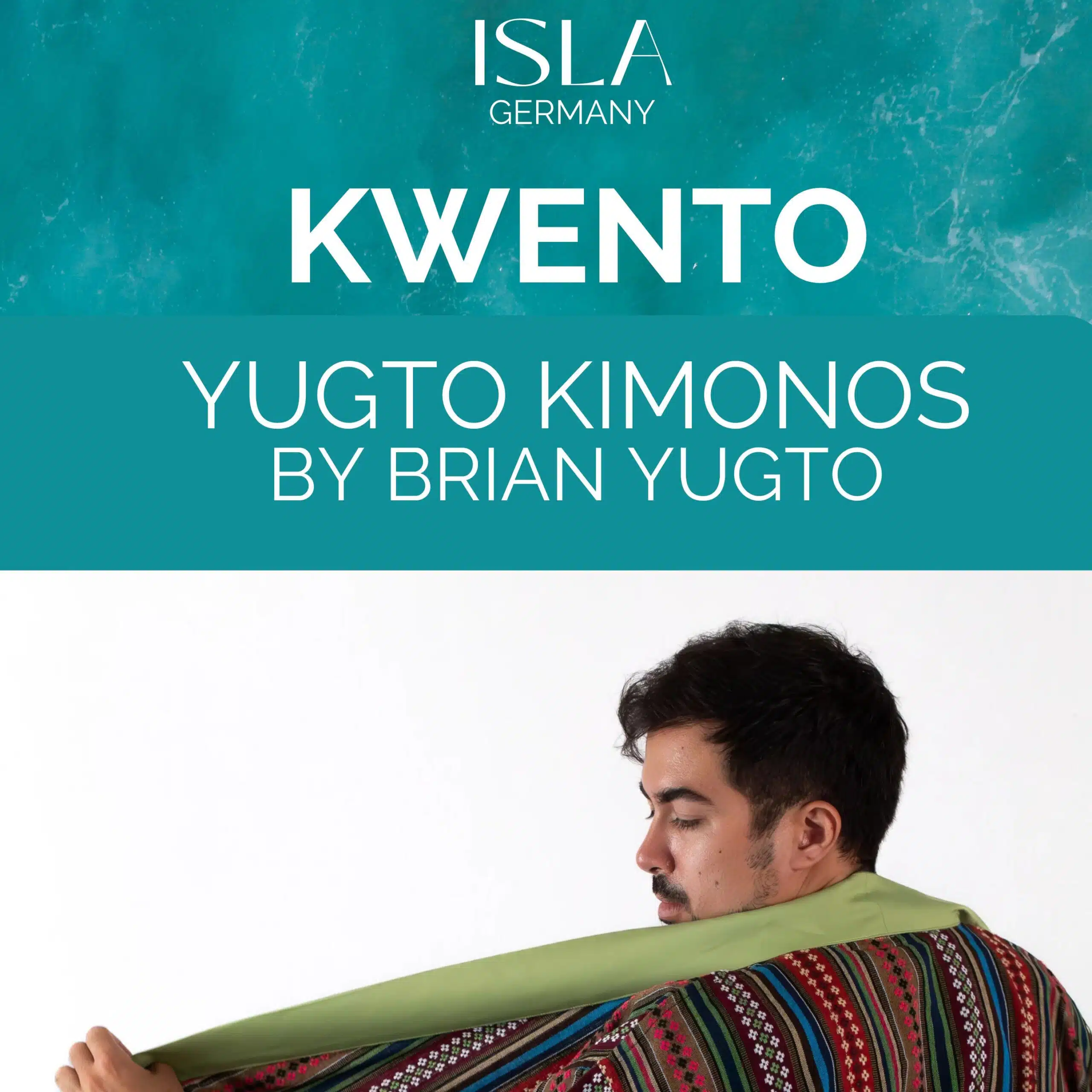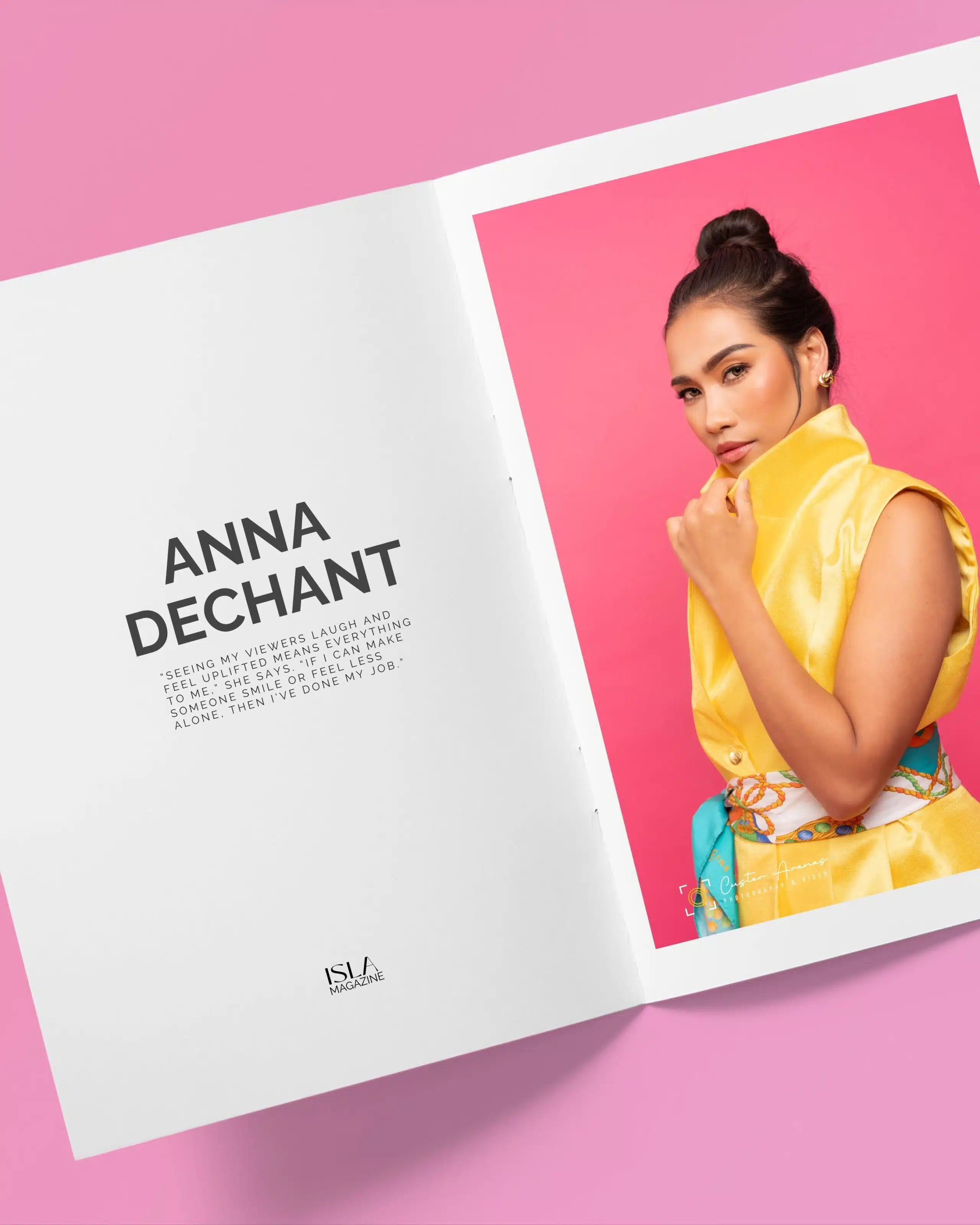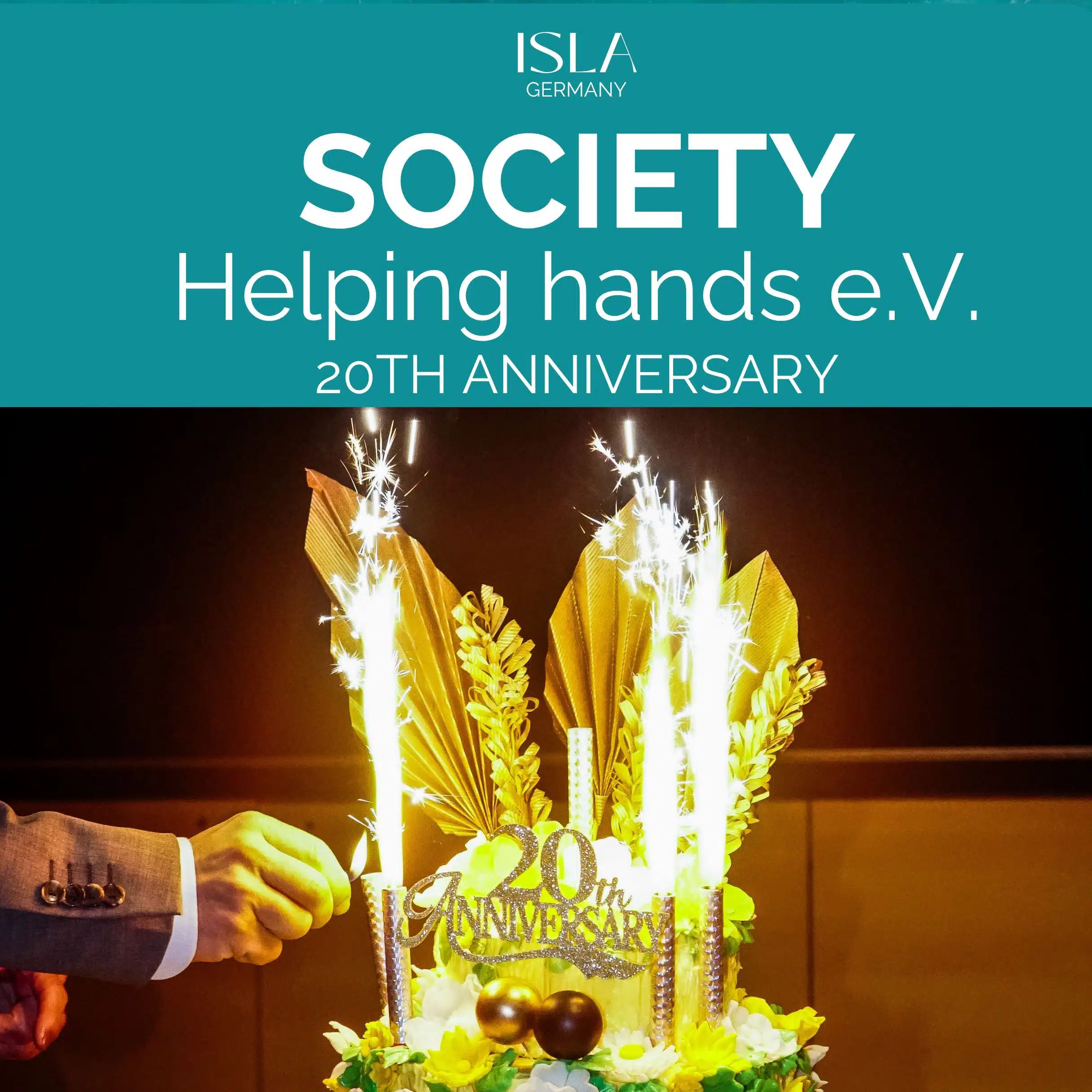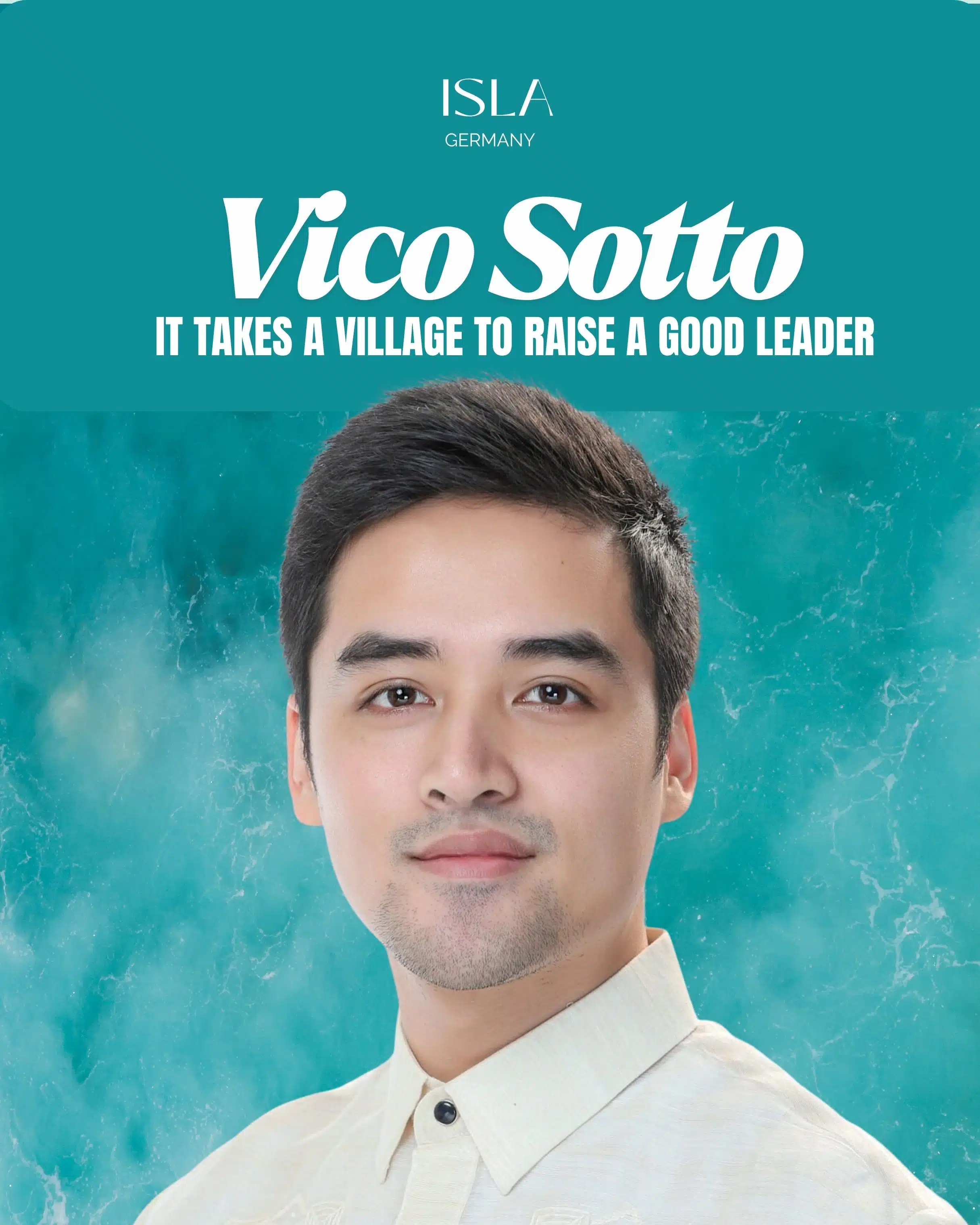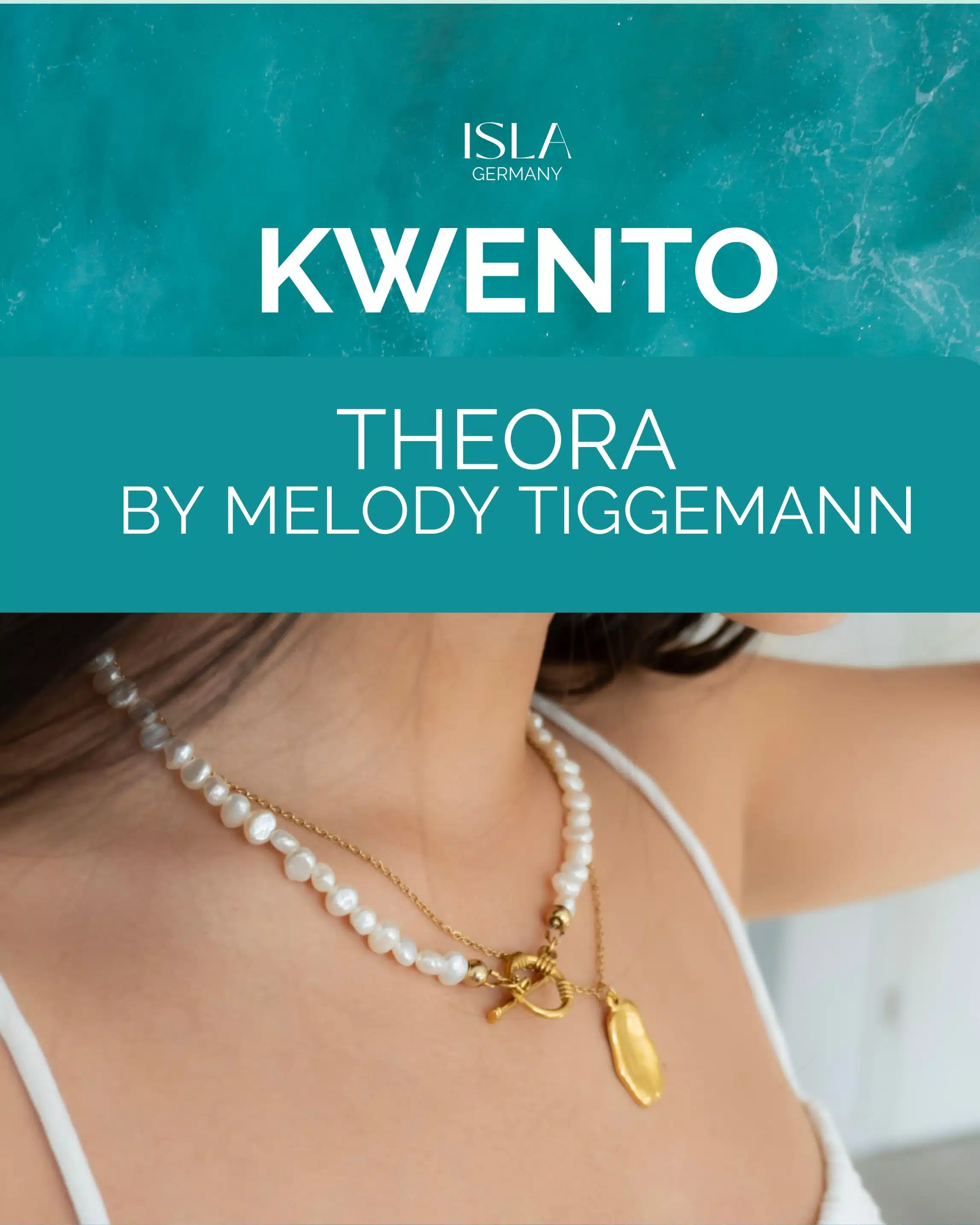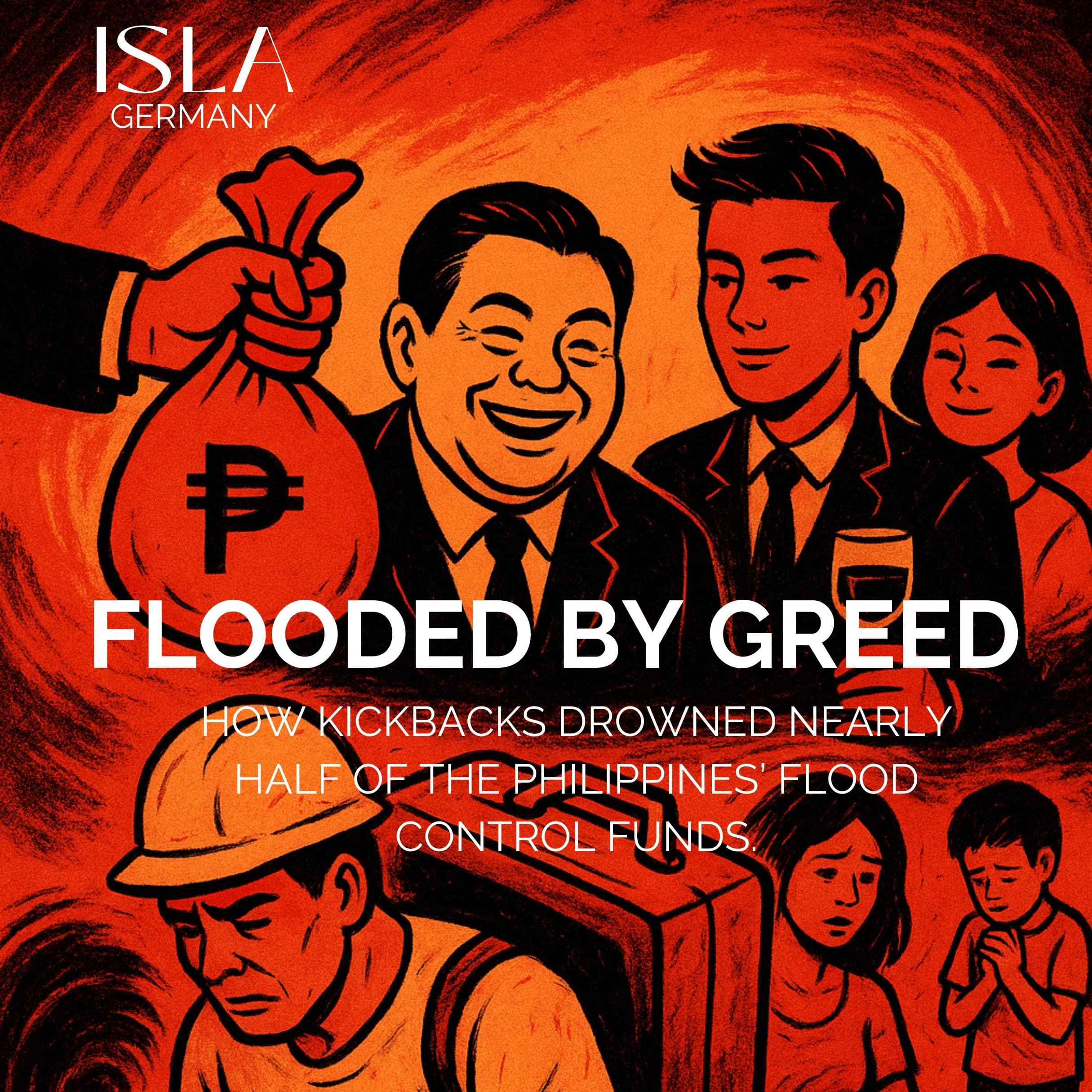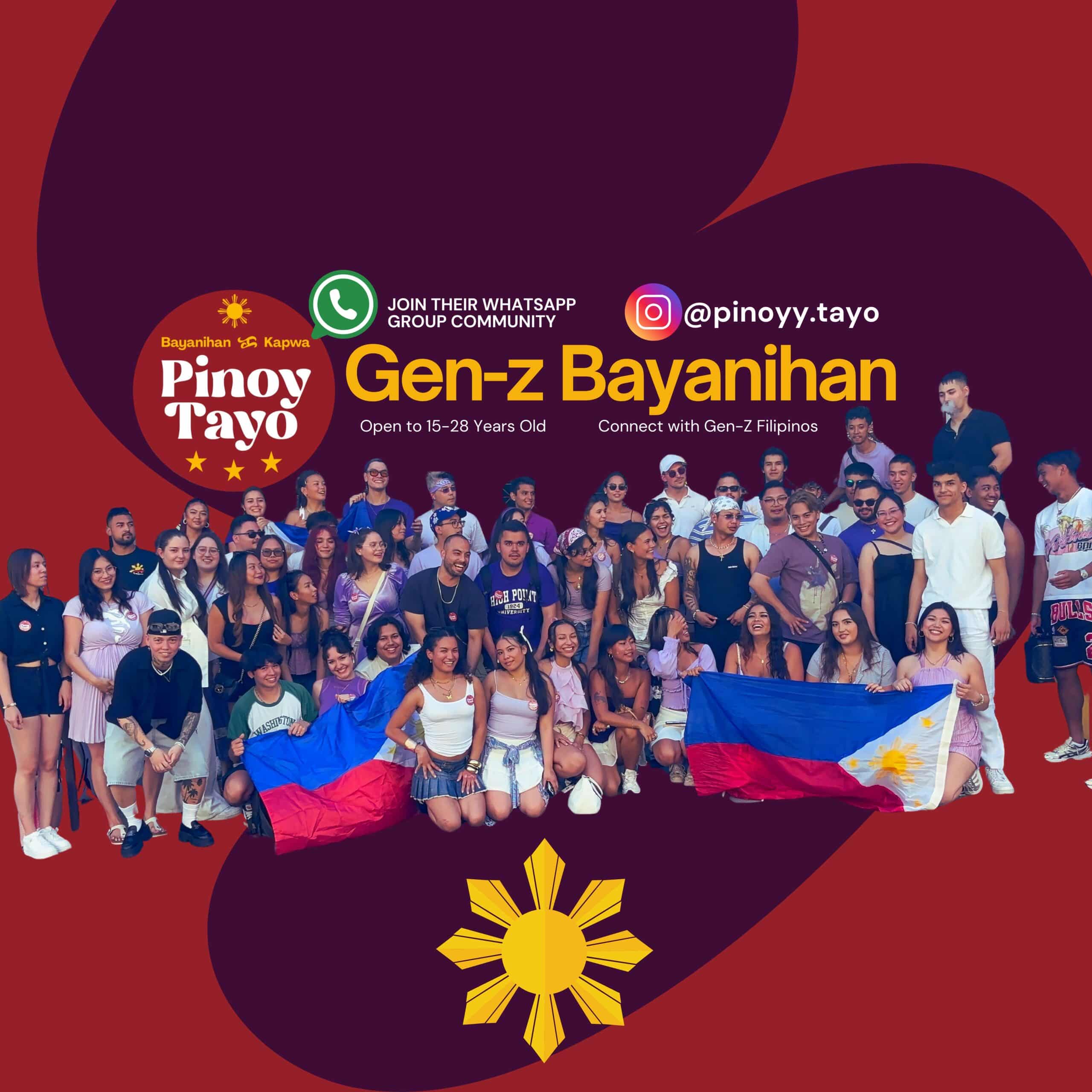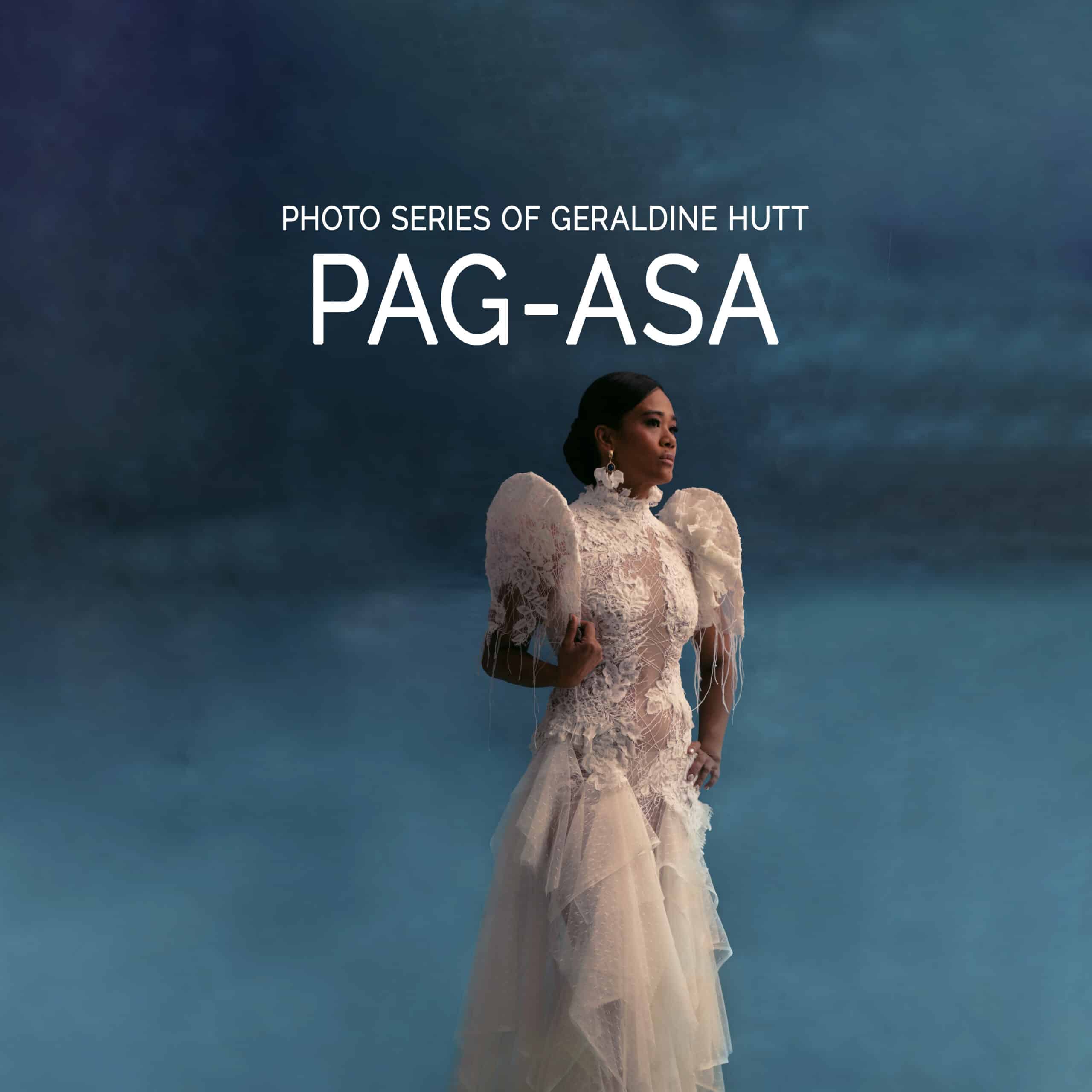Website: Yugto – www.yug.to
Weaving Filipino Soul into European FashionIn the vibrant world of fashion, where trends often dictate design, a unique brand emerges from the Philippines, bringing with it a rich tapestry of culture, personal journeys, and a profound sense of self-expression. “Yugto”, a kimono brand founded by Brian Yugto, is more than just clothing; it’s an invitation to embark on a “positive new chapter.”
The name “Yugto,” a Filipino word meaning “starting a positive new chapter,” perfectly encapsulates the brand’s essence. Brian shares that the concept was so deeply personal that it preceded the name itself. “It encompassed exactly the feeling I went through, when starting to wear expressive kimonos that my mom had made for me. I had embarked on a new chapter of self expression within my life through wearing something unique and empowering – knowing it to be truly me.”

This philosophy extends to every piece, designed “with feeling and not by market analyses and concepts,” resulting in bold, unique garments crafted from interesting materials like jute. The intention is clear: “every piece we make allows the owner it was designed for to soak up the same empowerment that I have been able to enjoy.”Brian’s own journey, from the Philippines to Berlin, is a testament to this transformative power.
It began with a kimono his mother made, initially sitting in his closet. A pivotal moment arrived when he sought an outfit for Berlin’s legendary Kitkat club that truly expressed his personality. Wearing the kimono, he felt “exactly the rush of being in sync with myself and my self-expression.” This experience, coupled with positive feedback, sparked an entrepreneurial idea that was “solid.” His “wake up call” came while working remotely as a data analyst on a beach, realizing he wasn’t fulfilled. This led him back to the Philippines, where, within two weeks, he and his mother, Rose, scoured markets for fabrics and created their first twenty prototypes. His creative vision is a culmination of his diverse upbringing in Germany, Canada, and the Philippines, and his adventurous travels, all viewed “through a curious lens.”

The brand’s tagline, “we are your new wings, dare to fly?”, speaks to the empowering experience of wearing a Yugto kimono. Brian explains that the kimonos are not easily hidden; they are “long (till at least the knees), big, flowy and probably very eye-catching.” This commitment to wearing such a distinctive piece fosters strength and resilience. “Now I’m flying – I dont even have an afterthought in wearing it, be it on the train, a Bavarian village or to a doctor’s appointment. I enjoy my personality and I enjoy expressing it.”Yugto’s collections, ranging from “Everyday Icons” to “Signature” pieces, are defined by a design philosophy that stems from “vibes.”

The process begins with fabric selection, where designers, including Brian, Rose, and Jowen, choose materials that resonate with them. They then envision a design, considering the wearer and the desired properties, before efficiently cutting and sewing the kimonos. “Everyday Icons” are simpler, minimalistic styles, while “Signature” pieces feature “extensive or unique designs,” often incorporating unusual fabrics, hand embroidery, or even upcycled items like a “dog” shirt his mother had for ages.The “Heritage line” proudly showcases Filipino textiles, with a clear disclaimer that while some are hand-woven, others feature Filipino symbols, prints, or colors.
For the true hand-woven textiles, Yugto prioritizes ethical sourcing, procuring directly from weavers in remote locations like Can’eo and Lubuagan. They ensure fair prices and engage in communication to understand cultural rules and stories behind the fabrics and symbols. Brian emphasizes, “We want to tell & respect their story with our creations, but most importantly, each hand-woven fabric carries the energies of the weavers and their families – So it’s essential to capture the ‘vibe’ in order to inspire an energetically sound design.” Other sources include trusted resellers and weaveries like Abel Philippines and Sagada Weaving.

Beyond Filipino roots, Yugto embraces diverse inspirations. The “Silk Ember” piece, for example, was woven in a Moscow fashion school. Brian explains, “We like to be inspired by our own stories and travels.” This also allows for experimentation with materials, as finding proper silk in the Philippines can be challenging. Their fabric procurement process is meticulous: they rarely purchase large quantities, instead focusing on “hidden gems” found in markets, specialty stores, or directly from weavers. They “feel each fabric in our hands, imagine the design, drape ourselves with it and watch for the flow, smoothness and the quality,” building a diverse inventory that allows for creative freedom.
The Filipino soul is carried into the modern European fashion world through Yugto’s design and diversity. Brian believes the Philippines has a “culture of variety” due to its historical cross-cultural connections and island-separated population. This is reflected in their fabrics, embellishments featuring Filipino symbols like the carabaoand bahay kubo, and a design language that is “quirky and kitchy, colorful, playful and vibrant.”Rose, Brian’s 73-year-old mother, plays a “vibrant role” as a designer and a source of cultural memory. She influences the design language, contributes many designs, and shares her collection of fabrics.

Her cultural memory animates select pieces, such as a kimono created with real hair, inspired by a photograph of her grandmother and her grandfather, a Chinese tradesman with long braided hair. Rose recounted, “I have seen a photo of my grandmother with her grandfather on the photo, and this is an old photo… she explained to me that the man beside her was her grandfather. He has a long braided hair. It was Chinese and she is Spanish. And I asked her why he has a long braided hair. She said that the sign that he was a tradesman. And so I incorporate one of my kimonos with real hair on the back.”

Another design, for which she is also the model, was inspired by her time in Munich in the 70s, reflecting light through stained church glass. Beyond design, Rose is the “life of our Yugto House,” where production takes place, caring for employees daily and bringing life into their atelier.Sustainability for Yugto is “anchored in the process.” As a small brand in a remote location, they consume and produce very little, focusing on local operations. They minimize their impact by utilizing existing supply chains like local markets and direct procurement from weavers, rather than industrial pathways.
All artisans are from the Atimonan region, providing local employment and training. Many, who previously only sewed school uniforms, now craft creative designs. Everything is done in-house at the Yugto House, from fabric storage to photoshoots. They prioritize efficient cutting to minimize waste and store smaller fabric scraps for embellishments. While they use air freight, their low production volume means “a few boxes in a year of our packed product shouldn’t contribute too much.”


Fair compensation and visibility for their team are paramount. Yugto works almost exclusively with their own sewers, offering “substantially higher” salaries (30%-50% above average) and a fixed salary rather than per-piece payment. This removes pressure and prioritizes quality and design.
Brian shares a touching example of their commitment to their employees, treating them like “Yugto Family.” When their lead artisan, Bhudo, couldn’t afford dental work due to family illness, Brian paid 50% of their first sales profits to cover the costs, ensuring Bhudo could “smile again with pride.” In return, employees offer unwavering support, as seen when they comforted Brian after the loss of his cat, Tiger, and when manager Jowen immediately assisted Rose during a late-night emergency.Navigating consumer trust and cross-cultural values as a German brand with Asian artisanal roots, Yugto prioritizes transparency. They communicate their story, explain fabric origins, and share meanings when available.Ultimately, Yugto hopes customers feel “the significance of wearing something meaningful,” a piece imbued with the stories of weavers, designers, and artisans, creating a “spiritual connection with oneself and the other people involved.” They believe each design is a “one-off design meant for a certain future customer,” leading to “unlikely connections and stories” for the wearer.

Past customer stories include Vivien, for whom a custom-designed kimono became a “true personal companion,” and rock singer Caspar, whose Yugto kimono fused with him on tour, making him appear “royal and cozy” to his fans.The ideal Yugto wearer is defined by “openness, connection to oneself and boldness,” someone “ready to take the plunge, is curious & intuitive, values a story, makes their own stories which they love sharing and doesn’t take themselves too seriously.”Looking to the future, Yugto’s immediate focus is on mastering storytelling and sales. However, they envision creating “ever wilder and bolder designs” and planning collaborations with other Filipino artists to create kimonos that “showcase our collective struggle of the diaspora.” Brian envisions Yugto as part of a “broader Filipino creative renaissance in Europe,” aiming to bring the “easy going and pragmatic world view, which is focused on true happiness, to Europe and the world!”
His long-term vision extends beyond the Philippines, to an “international collective” creating meaningful garments with local fabrics and personal designs, ultimately bringing back the “connection one can have with what they wear and with life.” The next chapter for customers, he hopes, is “exciting, not because of what is going on around them, but because it is a chapter from within, aligned with their true selves.”


